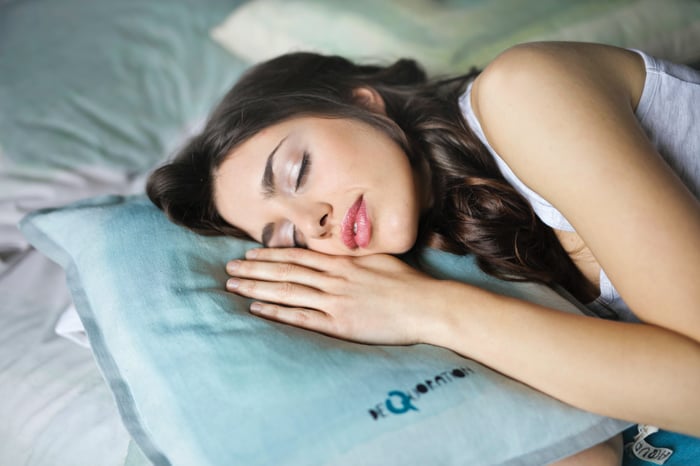Whether you’ve chosen a vacation package in Curacao or you’re traveling domestically, you’ll want to get good rest. Sleeping well while traveling can be tough. With unfamiliar time zones and environments, you’ll need all the help you can get to ensure you don’t spend your travels exhausted. There are several things you can do to prepare in advance and make sure you have the best sleep while you’re away.
1. Adjust Your Sleep Pattern in Advance
The best way to make sure you’re ready for any disruption to your sleep schedule is to adjust your sleep pattern in advance. You may need to move your bedtime forward or backward by a couple of hours. It’s best to do this gradually. Try to move your bedtime by 30 minutes at a time until you’re happy with it. If you’re a night owl, try to change this pattern so that you don’t spend all of your travels awake at night and sleeping through the day. This can make you miss out on a lot and isn’t the best pattern to be in when you want to immerse yourself in the local culture.
2. Hydrate
Staying hydrated is the key to good sleep and healthy life. Remember, if you’re traveling somewhere hot, it’s important to drink more than you would normally. Keeping hydrated will help you avoid restless nights and waking up gasping for a drink. If you want to enhance your sleep quality, drink lots of water and limit your alcohol and salt intake.
3. Keep Moving
Although it can be tempting to spend a lot of time relaxing while you’re away, try to keep active. There’s nothing wrong with unwinding and relaxing by the pool or the sea, but try to work exercise into your schedule too. Exercise will help you burn energy and get your body ready for a good rest. You don’t need to spend all of your time working out in the gym, simply walking and exploring is enough. Go out and enjoy the sights and local culture and burn your excess energy if you want to sleep well.
4. Follow the Local Pattern When You Arrive
Many people cannot adjust to the local time when they arrive at their destination, but this is very important. Landing in a new destination is exciting and you’ll likely want to explore right away. However, if you arrive late at night, try to go to bed as the locals would. Similarly, if you arrive early in the morning but have struggled to sleep on the journey, try to get through the day and sleep in the evening. Doing this will set you up for a better sleep pattern throughout the rest of your trip.
5. Take Supplements
Although a good diet can give you the nutrients, vitamins, and minerals you need to have a good sleep, supplements can be useful too. Lavender extract, melatonin, and CBD oil can all help you sleep better. Unlike prescription sleeping tablets, they’re also natural and have less associated side effects. These supplements are readily available from most health food stores.
6. Take Your Own Bedding / Routine Essentials
Taking your own bedding on your travels can seem like unnecessary luggage. However, your own bedding is likely the best thing you can sleep on. It’s familiar to you, and you will have adjusted it to meet your requirements. If you’re flying, then taking all of your bedding can take up too much room, but even a familiar pillow can make a tremendous difference. If you’re driving and have space in your car, then take all of your bedding and routine essentials if you can. If you sleep with a fan, clock, or light that helps you have a good night’s sleep, bring them along.
7. Sort Sleep Therapy Before You Go
If you already struggle with sleeping well at home, there may be an underlying problem. Many people have sleep problems, such as sleep apnea, sleep paralysis, night terrors, or sleepwalking that can greatly impact their sleep. Sleep therapy can help those with a sleep problem. This may involve using a CPAP machine or cognitive behavioral therapy depending on the issue. Sorting your sleep problems before you go will mean you’re prepared for a good sleep when you travel. You may need to undergo a sleep study, so it’s best to prepare well in advance if possible.
8. Ensure Your Journey Is Comfortable
The quality of sleep you get while traveling to your destination can determine how well you sleep throughout your trip. Making yourself as comfortable as possible on the journey will mean you’re not trying to catch up on sleep for days to come. Investing in a travel pillow, eye mask, earplugs, or anything else you think will enhance your comfort is a good idea.
Summary
If you prepare in advance, there’s little reason to have a night of poor sleep when traveling. Follow the steps above and be sure to address any sleep issues you may have before you leave. Try not to spend too much time lazing around. Sleep when the locals sleep and take anything with you that helps you to sleep well at home.
At Alaska Sleep Clinic, we understand your need for a comfortable CPAP machine you can take with you as you travel. Let us help you find the best solution for you so you can start traveling the world today. If you’d like to learn more about travel CPAP options please contact our sleep experts.










